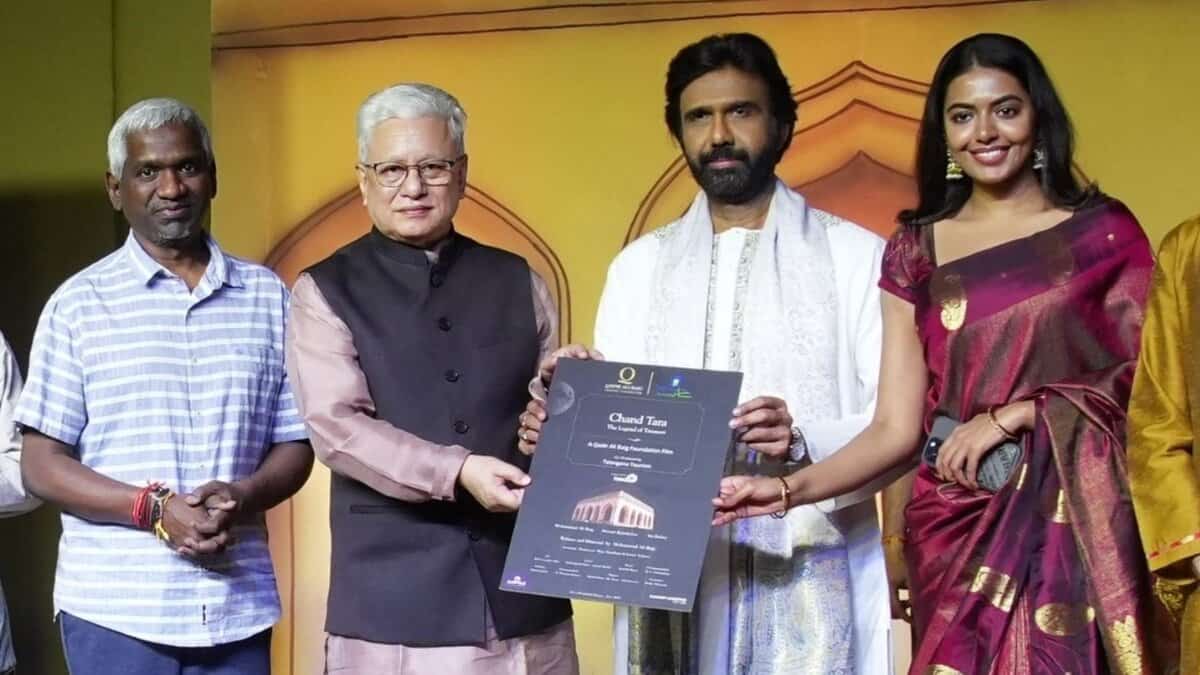Article 370 To India’s Got Latent: Key Judgments By Justice Surya Kant, Named Next Chief Justice By CJI BR Gavai | GPlus
New Delhi: Justice Surya Kant, a senior judge of the Supreme Court, is set to become the 53rd Chief Justice of India on November 24, succeeding CJI BR Gavai. Hailing from a small village in Haryana’s Hisar district, Kant rose from a rural background to the country’s highest judicial post. He will also be the first person from Haryana to hold the position, serving the longest tenure in recent times, until February 2027.
During his career, Kant has been associated with several landmark rulings spanning constitutional law, human rights, land acquisition, environmental protection, gender justice and media regulation. Here’s a look at some of his key judgments:
Abrogation of Article 370 (2023)
As part of a five-judge Constitution Bench in Article 370 of the Constitution, Kant upheld the Union government’s 2019 decision to abrogate Article 370, which granted special status to Jammu and Kashmir. The bench ruled that the move was constitutionally valid and within Parliament’s powers.
Minority Status of Aligarh Muslim University (2024)
In Aligarh Muslim University Through its Registrar Faizan Mustafa v Naresh Agarwal, a seven-judge bench including Kant overruled a 1967 precedent to reconsider the university’s minority status. The judgment examined Parliament’s authority to regulate institutions founded under central legislation.
Reservation for Women in Bar Associations (2024)
Kant directed that one-third of seats in all bar associations, including the Supreme Court Bar Association, be reserved for women. The ruling sought to ensure greater representation and gender balance within India’s legal institutions.
Regulation of Harmful Online Content (2025)
Part of a bench addressing offensive online remarks, Kant ordered five comedians to publicly apologise for comments mocking persons with disabilities. The court also instructed the government to develop a framework to regulate online content targeting vulnerable groups, including women, senior citizens and the disabled.
Protection of Public Lands (2019)
In Legal Maestros v Delhi Development Authority and Jitendra Singh v Ministry of Environment, Kant held state authorities accountable for environmental restoration in Delhi Ridge and reaffirmed that ponds and similar public utilities form part of the right to life under Article 21.
Right to Fair Compensation in Land Acquisition (2025)
In Barla Ram Reddy v Telangana State, Kant ruled that auction sale prices could be used to determine fair compensation in land acquisition, resolving valuation disputes in infrastructure projects.
Electoral Transparency (2025)
Kant directed the Election Commission to disclose details of 6.5 million voters removed from Bihar’s electoral rolls, underscoring transparency in electoral processes.
Abeyance of Sedition Law (2022)
On the bench for SG Vombatkere v Union of India, Kant was part of the decision to keep the sedition law in abeyance, directing that no new FIRs be filed under it pending government review.
Probe into Prime Minister’s Security Lapse (2022)
In Lawyers Voice v State of Punjab, Kant was part of the bench that ordered an independent inquiry into a 2022 security breach during the Prime Minister’s Punjab visit.
One Rank, One Pension Scheme (2022)
Kant’s bench upheld the validity of the One Rank, One Pension (OROP) scheme for armed forces veterans, affirming the government’s policy framework.
Media Regulation and Freedom of Speech (2025)
In the India’s Got Latent case, involving controversial remarks by comedian Ranveer Allahabadia, Kant cautioned that free speech is not absolute. He emphasised that rights must be exercised responsibly and in harmony with civic duties.
High Court Judgments Before 2019
As a judge of the Punjab and Haryana High Court, Justice Kant’s Jasvir Singh ruling directed the Punjab government to create a Jail Reforms Committee enabling conjugal visits for inmates.
As Chief Justice of the Himachal Pradesh High Court, he reasserted that access to basic amenities such as water and electricity formed part of the constitutional right to life.

















































